What exactly is noir? That’s the debate our office falls into every year when we’re putting together this list. The answer usually follows Justice Stewart’s reasoning on obscenity—I know it when I see it—but depending on who’s arguing it seems to involve some unholy mixture of criminal underworlds, existential dread, detectives (professional or otherwise), urban settings, rural settings, antiques, gemstones, and long brooding walks (or drives) where the meaning of life, love, and poetry is meditated on. The best thing about trying to define noir is just how slippery the notion is, how it changes from year to year, author to author, book to book. This year we saw novels about getaway drivers, corporate thieves, con artists, and antiquarian booksellers. Subcultures were explored and forgotten terrains charted. Fans of classic noir will be well-served, but there was plenty of advance and innovation. It was, in short, a banner year.
Here are our choices for the year’s best noir novels.
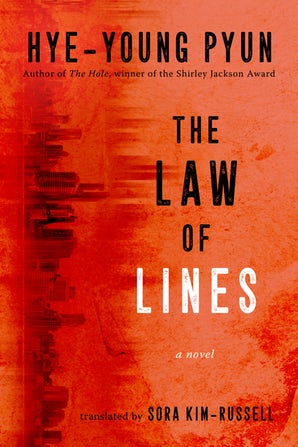
Hye-Young Pyun, The Law of Lines
(Arcade)
This one is pure, hard-scrabble noir. Off of a back alleyway in Seoul, a woman comes back from the store to find her father, burdened by debts, has killed himself in a botched insurance scheme. She vows to track down the loan sharks who drove her father to his desperate act. A few miles away, a school teacher receives notice that her sister has drowned. After a conflict with a student forces her to take a leave of absence, she sets off to reconstruct the last days of her sister’s short and lonely life. The women’s paths intersect as they both grow closer to their respective prizes. But do they seek the truth, or merely small moments of connection and kindness? A harrowing and elegiac portrait of a vast and alienated cityscape, populated by those who would do anything to keep themselves and their families from slipping under. –Molly Odintz, CrimeReads Senior Editor
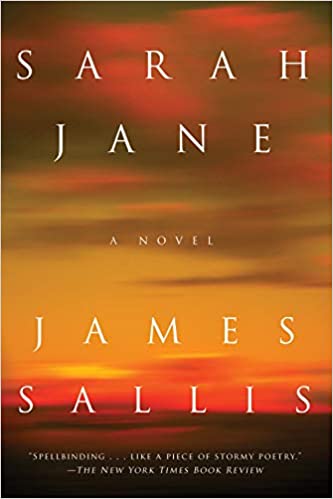
James Sallis, Sarah Jane (Soho Press)
Sallis, one of the great talents in contemporary noir, publishes sparingly these days, but when a new novel of his does come around, you can expect a story with enough power and poignance to last a good many reads and the years ahead. In Sarah Jane, he lays out the story of one woman’s life in the Midwest, a turbulent journey that’s taken her from a childhood marked by want and disappearance, through her military service, and into her current role, as a kind of accidental sheriff charged with the investigation into the vanishing of her predecessor. Nothing in her story, past or present, is quite straight-forward, and in a vivid, hypnotic series of tales, Sallis builds an eery momentum toward an uncertain future, along the way lingering over the small details of everyday life. The central mystery of Sarah Jane is a compelling one—a lawman gone, but maybe not—but much of the story’s power lies in its attention to the people on the mystery’s margins. A community fills in around Sarah Jane, one that’s not always pretty but is intensely human. Sallis’ noir is equal parts visceral and graceful, and in Sarah Jane he gives us an extraordinary work pushing the boundaries of noir. –Dwyer Murphy, CrimeReads Editor-in-Chief
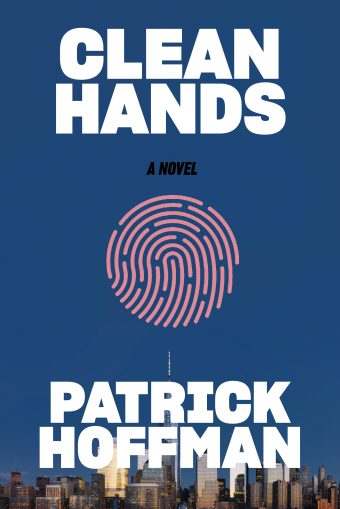
Patrick Hoffman, Clean Hands (Atlantic Monthly Press)
In Clean Hands, a young lawyer working at a white shoe firm in New York has his IPhone stolen during rush hour in Grand Central. The phone contains confidential documents pivotal to a civil dispute between banks, and as the hardware passes through several hands, the information it contains becomes currency for criminal networks of many, many different cultural backgrounds operating out of New York City’s neighborhoods like noir fiefdoms. The firm calls in its fixer, an ex-CIA hand with a team trained in crisis management. Soon, a widening conspiracy comes into focus. Clean Hands is Hoffman’s first book to take on New York as its central setting. It feels particularly timely in the city’s moment of crisis, as Hoffman’s crooks and conspirators fan out across an intricately, lovingly-drawn grid with as deep a roster of hustlers as any Elmore Leonard ever conceived. –DM
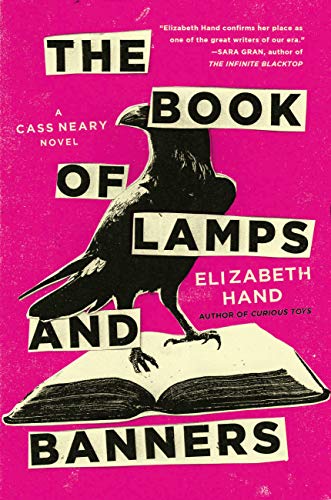
Elizabeth Hand, The Book of Lamps and Banners (Mulholland)
Hand is experiencing a well-deserved surge of popularity in the States, and readers who are new to her work are in for a treat, as she returns to a favorite character, the photographer Cass Neary. After Neary returns home to a stolen camera and few options for making ends meet, she inserts herself into the purchase of one of the world’s most sought after books, an illuminated manuscript supposedly rescued from the library at Alexandria. When the book goes missing, Cass and her ex go on the trail, navigating a shady world of antiquarian books and the obsessives who chase after the books’ legendary wisdom. Hand is one of the most talented storytellers at work today, and The Book of Lamps and Banners is a strange, subversive tale that puts her talents on full display. –DM
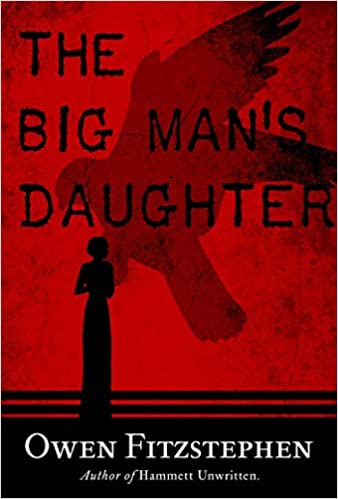
Owen Fitzstephen (Gordon McAlpine), The Big Man’s Daughter
(Seventh Street Books)
McAlpine (writing here as Fitzstephen) is one of our foremost practitioners of literary mystery. Descended from the line of ingenious inventors like Borges, his work penetrates and explores the history of books and storytelling. In his latest, he reimagines the world of The Maltese Falcon, entering the story through the perspective of Rita Gaspereaux, a young woman alone in 1920’s San Francisco, consumed by the various schemes and stories of her con artist father, and of course by the books she reads religiously while navigating the city’s underworld. Tales and identities soon converge as the infamous statuette imposes its legacy on a new generation, and McAlpine brings a powerful new light to a classic noir story. –DM
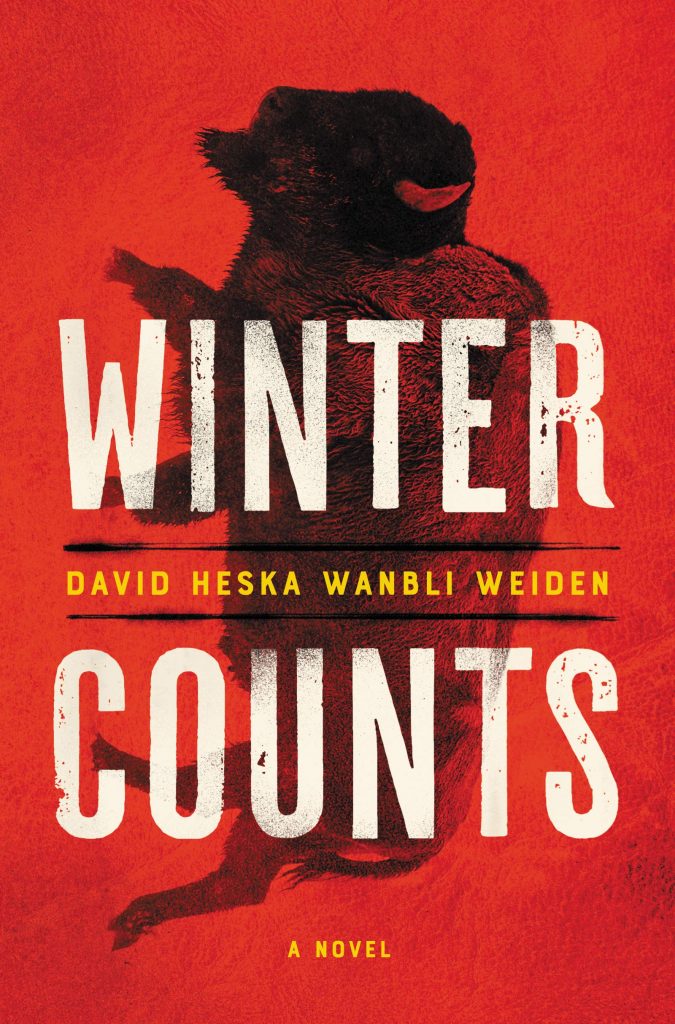
David Heska Wanbli Weiden, Winter Counts
(Ecco)
Winter Counts is one of 2020’s most exciting debut novels, the start of what we hope will be a long and many-volumed career in crime fiction. Meet Virgil Wounded Horse, the man who takes on the jobs traditional law enforcement can’t handle on the Rosebud Indian Reservation in South Dakota. He’s determined to find out how heroin is flooding the reservation, a crusade that takes him across the parched, corrupted landscapes of the American West and after organized crime figures fueling the systemic injustices already in place on the reservation. This is urgent, hard-hitting crime fiction that will keep you reading. –DM
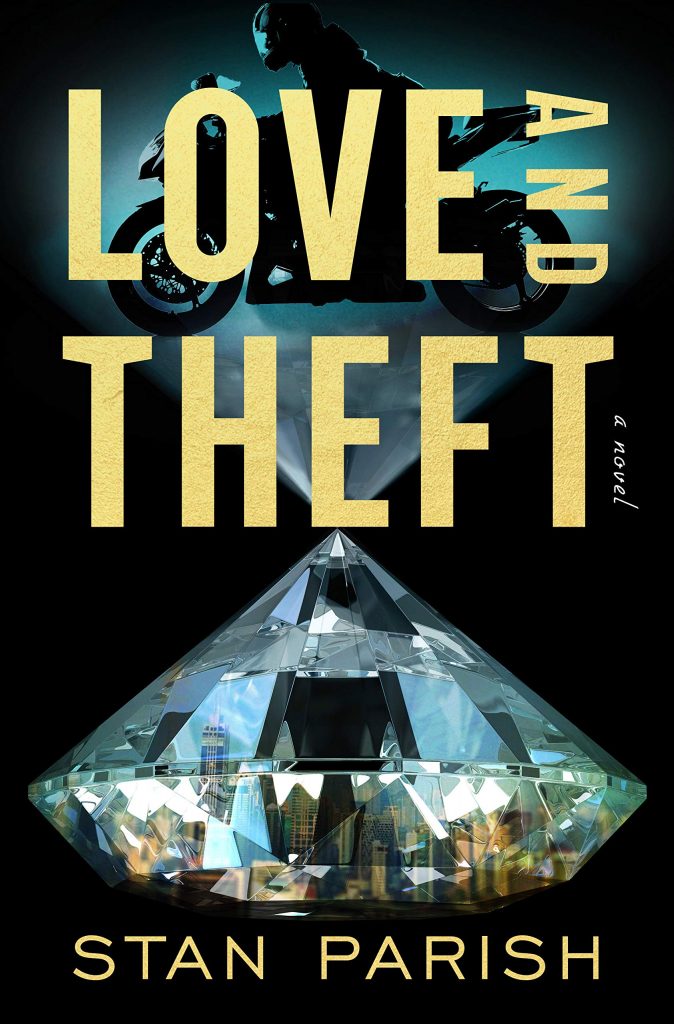
Stan Parish, Love and Theft (Doubleday)
Parish has crafted one of the strongest contributions in recent memory to a genre much-beloved here at CrimeReads: the heist novel. In Parish’s version of this classic story, a successful thief just off a big Vegas score meets an impressive single mother at a party in Princeton. The two quickly escalate their relationship and end up in Tulum for a weekend, when the thief’s past begins to catch up with him and he realizes he needs to orchestrate the legendary “one last score” in order to get out of the game for good. Parish manages to weave together genuinely compelling arcs of crime and complicated human entanglements. –DM
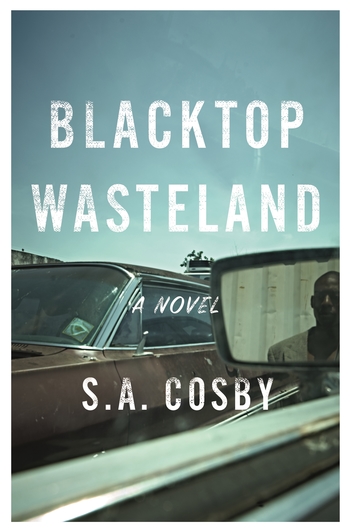
S.A. Cosby, Blacktop Wasteland (Flatiron)
Cosby’s Blacktop Wasteland is possibly the year’s most celebrated crime novel, and with good reason. It’s a soaring, deeply felt, deeply propulsive tale written by an author coming into his full powers. Beauregard “Bug” Montage is a family man and a pillar of the community, with a past. He’s also the seemingly retired getaway driver known across the southeastern of the US as the best man to get you away from a crime. When an old colleague comes calling with a new proposal, the two identities begin to merge anew, and Bug goes back behind the wheel. Cosby writes beautifully of the sensations and memories that drive Bug through the night and down the empty roads toward his old life. Dread and excitement combine to create a unique sense of atmosphere, one that will keep readers pushing ahead toward a genuinely powerful conclusion. –DM

Kristin Lepionka, Once You Go This Far (Minotaur)
In Lepionka’s latest, the fourth to feature her compelling detective, Roxane Weary investigates the mysterious falling death of an experienced hiker, hired by the woman’s daughter, who suspects her ex-cop father of doing the dirty deed. Despite the ex-husband’s connections, Weary’s soon knee-deep in details that prove he’s an ass, but there may be more to the woman’s death than an angry ex, especially when a crooked politician gets tied to the murder. –MO
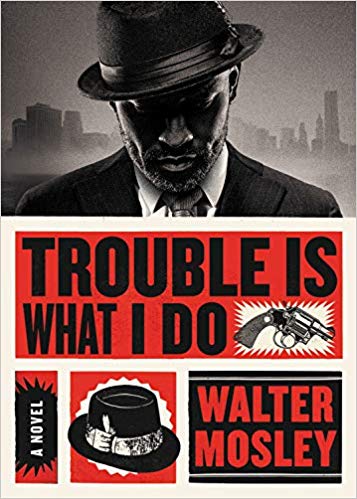
Walter Mosley, Trouble Is What I Do
(Mulholland)
Mosley was back this year with the sixth novel in his Leonid McGill series, and the story really allowed the legendary author to shine. An old bluesman shows up on his PI’s doorstep with an enticing project: exposing the race-based secrets of a corrupt, ruthless, and very rich family. McGill takes the job and ends up in the line of fire, affording Mosley a chance to wander through a few underworld’s of the New York City crime category, always a treat for readers, and one that packs a moral punch. Mosley is, quite simply, an icon of detective fiction, and with each new novel in the McGill series he’s making New York noir his own just as he did with Los Angeles. –DM

















